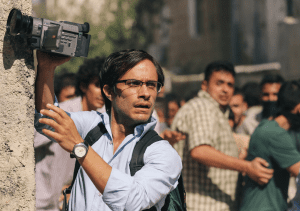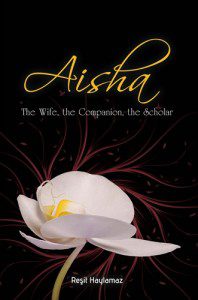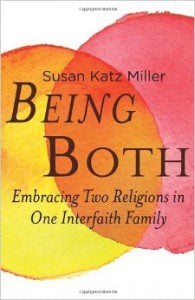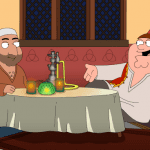 |
|
The usual …or unusual?
|
The first thing that strikes the reader of The Reluctant Mullah by Sagheer Afzal is its shelf appeal. The cover exhibits a mysterious figure wrapped up in what appears to be a black cloak and niqab with a red heart nearby, and the introduction “The clock is ticking for Musa. He has just 30 days to escape from an arranged marriage.”
It’s quite a different proposition to the similar sounding – but much more sinister – book The Reluctant Fundamentalist, which predates our Mullah by at least 3 years and explores what leads people to extremism, leaving unanswered in the reader’s mind the question of who exactly are the extremists. The author probably never intended his book to be a Reluctant Fundamentalist anyway, a book which was a serious contender to challenge our preconceptions of terrorists, and written in suitably elegant and powerful style.
So if you read this book, take note of the playful cover – this is a light-hearted comedy of people looking to find not just love but also their place in the world. This is a world far from terrorism and extremists. The book doesn’t set out with a message about Muslims or terrorism. It’s just a new set up for the age-old search-for-love situation comedy.
Our hero Musa is the youngest of four siblings, and has been consigned to Imam school since he’s shown little ambition or skill at anything else. Musa has a big heart, and the innocence of a child, but his family see him as weak and a bit soft in the head. He seems more suited to exploring the wonders of the world, than laying down rules to others on how to direct it.
The eldest son is the dark sheep of the family, the archetypal errant son who comes back to re-join the fold, but ends up wreaking havoc. This homage is to East is East, and is echoed in a current Eastenders storyline, and is repeated with homages to other film genres too. Next is Suleiman, the dutiful son who brings in family income and is tasked with taking Musa under his wing after Musa is expelled from the Islamic seminary. Then we have Shabnam, the only daughter of the family, who shines as a character at odd moments, revealing Afzal’s deeper affinity for writing female characters than he might realise.
Alongside Musa’s parents is the fearsome Dadaji, the patriarch of the clan, a mixture of domineering mafia godfather and sufi saint. He is the catalyst for the story – giving Musa his ultimatum to search for his own bride, or be married to his cousin in Pakistan whom Dadaji has selected for him.
And so with the ultimatum stinging his ears, Musa sets off through a whirlwind tour of arranged marriage rituals to find his bride to be. I’m a romantic at heart, and so it was this thread in the story that kept me hooked – and the results will chime with fans of both Cinderella and When Harry Met Sally genres. We experience internet dating, traditional matchmakers, friends of friends and even TV marriage bureaus with some comic moments. If the romantic storyline is resolved Harry Sally fashion, then the book concludes in homage to a feisty Godfather-style mafia drama. Afzal is clearly a man who knows and respects his genres.
Sagheer Afzal explains how the book references his own personal experiences of getting married. Although Afzal is British born, he chose to have an arranged marriage in Pakistan. At his wedding, his bride-to-be abandoned him, but not before she had fleeced him of the wedding jewellery and £1000. But he’s not bitter, preferring to chalk it down to experience, and take solace in the fact that it has ultimately led him to have his first book published.
As an author who spends time writing about the human stories of contemporary Muslims, I found myself at times over engrossed in a meta-analysis of the story and its construction. I struggled with a conflict of interest between being a reader and a fan of light fiction and being a commentator on Muslims in the arts and media. I found this challenge particularly acute when the book described the processes of looking for a marriage partner as this has many connections to my own book Love in a Headscarf. It highlighted the fact that both men and women today are struggling to find the right process to find a partner and that the processes and expectations can be both a help and a hindrance. However, whilst the 30 day countdown is a powerful literary device to bring the story to a conclusion, as a reader you are left wondering if Musa would have met with more success in his search had he spent a little bit more time on any of the methods he pursued.
I had to constantly check myself from analysing this as a media representation of Muslims, and try to get into the storyline itself. For example, Suleiman finds himself playing the role of both dutiful and preferred son who supports his parents by day, and deals drugs to prostitutes by night. First of all, I wondered at this new narrative – echoed across several of the characters – of the Muslim who appears ‘good’ on the outside, but is hiding dark secrets on this inside; is this the new Muslim archetype? In addition, these are characters who are conflicted and whose religion is the barrier to resolving their inner tensions. Is this the very modern anti-religion perspective creeping into the way Muslim characters are drawn? Again, is this a new type of Muslim literary character?
With my commentator hat on, I found my hackles raised when the split-personality son comes to a resolution to his issues as a Muslim through the ‘saviour’ of a priest’s words. It is impossible to predict what can change the course of a person’s life, and I fully believe that it can be something a person similar to you or totally different to you that triggers a change. However, in a book that makes a failed would-be Imam into a central character, and whose story is focused around the construction of an Islamic centre for young people, one is left with unsavoury echoes of colonial missionaries sent to save the heathens.
In the end, I was left wondering how I would fit into this world (probably very uncomfortably), or whether I had met characters like this in my own personal life (they were unfamiliar to me personally, but this is a novel after all, so my assessment of reality had to be suspended). But mostly I was left wishing that the book wasn’t named after a very different book, which meant it was comparing itself to a totally different kind of story, which other than Muslim characters had nothing in common.
The challenge which publishers need to rise to is to see what the actual story is, and to package and publish it as such. It turns out that the publishers saw ‘Muslim’ and edited, and marketed the book accordingly. The Reluctant Fundamentalist was a dark story of an individual journey playing with notions of who is a terrorist, and how the media puts them forward as representatives of a whole faith group. The Reluctant Mullah is a story of a dysfunctional family torn between culture, religion and selfish motivations, who represent nobody other than their own fictional selves. And there’s nothing wrong with that.
Read Shelina’s interview with author Sagheer Afzal at her blog, Spirit 21.
Shelina Zahra Janmohamed is author of Love in a Headscarf, a humorous and irrevernt memoir of growing up as a Muslim woman. She also writes the Brass Crescent Award-winning blog Spirit 21.











